Essential Oils Uses & Tips
What are Essential Oils?Essential oils are compounds extracted from plants. The oils capture the plant's scent and flavor, or "essence." Essential oils are obtained through distillation (via steam and water) or mechanical methods, such as cold pressing. Essential oils smell great, reduce stress, treat fungal infections, and help you sleep. There's a wide variety of essential oils available. Some are valued for their pleasing aroma, and others have powerful healing properties. It can take several pounds of a plant to produce a single essential oil bottle. Aromatherapy is the practice of using essential oils for therapeutic benefit. The skin can also absorb essential oils. A massage therapist might add a drop or two of wintergreen to oil to help relax tight muscles during a rubdown.Health Benefits Essential oils hold a prominent place in traditional and folk medicine worldwide. Essential oils hold a prominent place in traditional and folk medicine worldwide.
Stress Reduction Many essential oils are used in aromatherapy to manage stress and anxiety; the smell of some essential oils can work alongside traditional therapy to treat anxiety and stress. Using essential oils during a massage may help relieve stress, although the effects may only last while the massage occurs. Many essential oils are used in aromatherapy to manage stress and anxiety; the smell of some essential oils can work alongside traditional therapy to treat anxiety and stress. Using essential oils during a massage may help relieve stress, although the effects may only last while the massage occurs.
Fungal Infections Early tea tree oil studies have had promising antimicrobial qualities long touted in traditional medicine. The oil has been used for athlete's foot, oral thrush, and fungal infections like candida. Early tea tree oil studies have had promising antimicrobial qualities long touted in traditional medicine. The oil has been used for athlete's foot, oral thrush, and fungal infections like candida.
Sleep Aid Lavender oil's relaxing fragrance is thought to improve sleep quality. Older adults are living with dementia. They found that sprinkling the essential oil on towels around their pillows significantly increased their sleep time, helping them slumber longer in the mornings. Improve the sleep quality of women after childbirth, Lavender oil's relaxing fragrance is thought to improve sleep quality. Older adults are living with dementia. They found that sprinkling the essential oil on towels around their pillows significantly increased their sleep time, helping them slumber longer in the mornings. Improve the sleep quality of women after childbirth,
Reducing Inflammation Essential oils may help fight inflammatory conditions. Some test-tube studies show that they have anti-inflammatory effects. Essential oils may help fight inflammatory conditions. Some test-tube studies show that they have anti-inflammatory effects.
Headaches and Migraines This is probably the most commonly used essential oil for headache relief; Peppermint oil is one of the most frequently used oils to treat headaches and migraine attacks. It contains menthol, which can help relax muscles and ease the pain. It's thought that applying diluted peppermint oil topically can help relieve pain from both tension headaches and migraine attacks. This is probably the most commonly used essential oil for headache relief; Peppermint oil is one of the most frequently used oils to treat headaches and migraine attacks. It contains menthol, which can help relax muscles and ease the pain. It's thought that applying diluted peppermint oil topically can help relieve pain from both tension headaches and migraine attacks.
Antibiotic and Antimicrobial Many essential oils have antioxidant properties. Antioxidants help prevent damage to cells caused by free radicals, which can lead to severe diseases such as cancer. The rise of antibiotic-resistant bacteria has renewed interest in searching for other compounds that can fight bacterial infections. Essential oils, such as peppermint and tea tree oil, extensively for their antimicrobial effects, observing some positive essential oil could treat bacterial infections in humans. Many essential oils have antioxidant properties. Antioxidants help prevent damage to cells caused by free radicals, which can lead to severe diseases such as cancer. The rise of antibiotic-resistant bacteria has renewed interest in searching for other compounds that can fight bacterial infections. Essential oils, such as peppermint and tea tree oil, extensively for their antimicrobial effects, observing some positive essential oil could treat bacterial infections in humans.
USES
The Safest Ways To Use Essential Oils Include:Aromatherapy accessories: Necklaces, bracelets, and keychains made with absorbent materials you apply essential oils to and sniff throughout the day. Body oil: A mixture of essential oils with a carrier oil such as olive, jojoba, or coconut oil that can be massaged into the skin. Because essential oils are concentrated, they can irritate, and avoid using them full-strength on the skin. Aroma stick: An essential oil inhaler, these portable plastic sticks have an absorbent wick that soaks up the essential oil. They come with a cover to keep the scent under wraps until you're ready.Precautions:Although essential oils come from nature and have been used for centuries, they're not without risk. Improper use can cause severe adverse reactions or even poisoning, so they must be used and stored according to manufacturers' specifications. Essential oils should be kept away from children and pets, whose bodies often can't tolerate the exact dosages as an adult. In addition, anyone who is pregnant should consult a doctor before using essential oils. |
Tags:
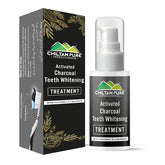

![Red Onion Oil 🧅 Reduces Hair Fall & Accelerates Hair Regrowth [پیاز کا تیل].. Trending.... 🔥 - ChiltanPure](http://chiltanpure.com/cdn/shop/products/red-onion-oil-reduces-hair-fall-amp-accelerates-hair-regrowth-piaz-ka-til-trending-394813_165x.jpg?v=1707464619)
![Red Onion Oil 🧅 Reduces Hair Fall & Accelerates Hair Regrowth [پیاز کا تیل].. Trending.... 🔥 - ChiltanPure](http://chiltanpure.com/cdn/shop/products/red-onion-oil-reduces-hair-fall-amp-accelerates-hair-regrowth-piaz-ka-til-trending-329640_165x.jpg?v=1708127491)
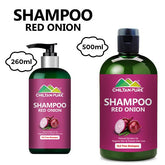

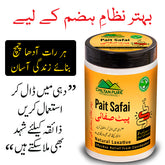

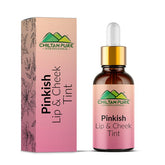

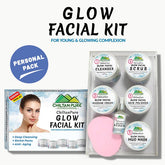



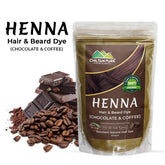

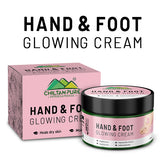

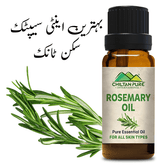


Leave a comment
Please note, comments need to be approved before they are published.